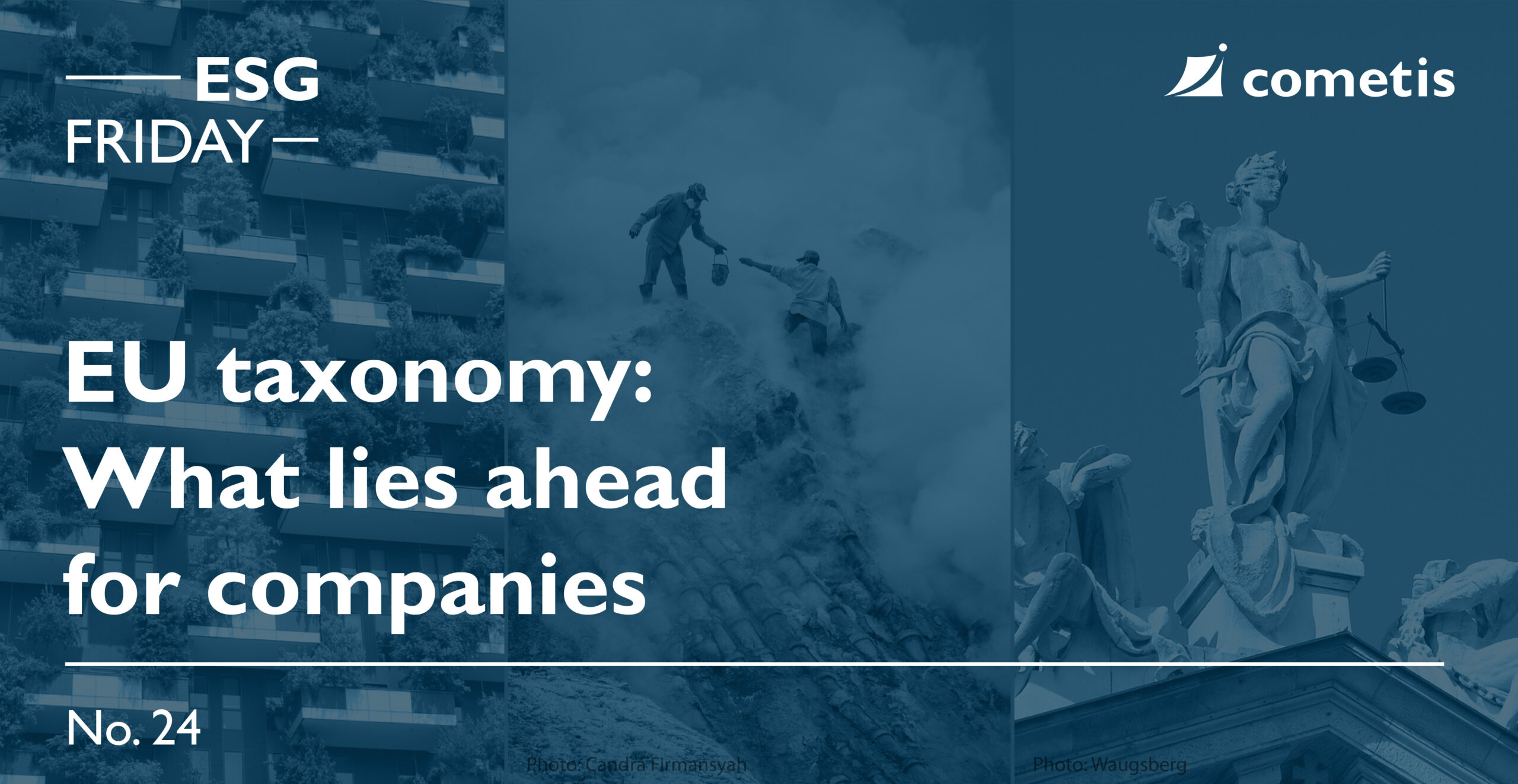Wiesbaden, July 16, 2021. The development of the EU Taxonomy continues to move forward – and with it, the obligations of all large companies in the EU are drawing closer. Thus, the EU recently adopted the final draft of the Delegated Act and prepared a detailed overview of what is considered taxonomy-compliant in the first place.
von Michael Diegelmann und Justus Fischer
The aim of the EU Taxonomy is clear: asset managers should only use the term sustainability if it is justified by objective criteria. We have already explained what information companies basically have to provide for this purpose. For example, they are to use prescribed criteria to prove what percentage of their products and services support certain environmental goals – while not harming the rest.
What to do: supplementary Article 8
The European Commission already agreed on the EU Taxonomy Climate Delegated Act in April and formally adopted it on June 4. As early as next year, companies will have to state what proportion of their sales they generate with taxonomy-compliant products or services and what percentage of investment and operating expenses can be classified as sustainable. The EU Commission has described how this is to look in the Delegated Act Article 8, which only the other legislative bodies of the EU have to adopt finally.
According to this article, all companies are required to disclose the taxonomy ratios required by the EU, which also have to publish their non-financial information anyway according to the “Non-Financial Reporting Directive” (NFRD) – i.e. large capital market-oriented companies with 500 or more employees. Non-financial companies are to make separate disclosures. Currently, 11,600 companies in the EU would be affected. Next year, they will have to report on the two EU climate targets, “Climate change mitigation” and “Climate change adaptation”. The other four targets will follow a year later. For SMEs, this reporting is still voluntary, but not for much longer. The EU wants to revise the NFRD so that over 50,000 companies could then be obliged to make all disclosures.
Taxonomy Compass: guidance for companies
In order to find out whether and how many of its own services, products and expenditures support the goals at all, the EU has developed fixed specifications. With all the different products that companies manufacture in Europe, there must also be a correspondingly large number and individual criteria. Companies in the automotive industry have to meet different requirements than pharmaceutical companies. A detailed overview of what is considered taxonomy-compliant for certain product or service groups is provided by the new Taxonomy Compass. It contains information from the Technical Screening Criteria on climate targets in a condensed form and will also be updated in the future as the taxonomy is expanded.
So far, concrete requirements are only available for the environmental goals “Climate change mitigation” and “Climate change adaptation “. The remaining criteria will follow. Companies subject to reporting requirements in particular should already familiarize themselves with the contents and regulations of the Taxonomy Compass as quickly as possible.
Do you need help to prepare for the EU Taxonomy in the best possible way? We can help you. Get in touch here.

Michael Diegelmann has gained experience in over 150 communications projects (IPOs, investor relations, ESG, M&A, crisis) and has been working in the field of capital market communications since 1997. He is the author of 16 book publications relevant to the capital markets and was previously project manager at an international consulting firm and a Frankfurt brokerage house.

Justus Fischer has gained experience in various ESG and IR communications projects. He coordinated a cross-media content marketing campaign for an international technology group. Justus studied media studies, rhetoric and literature at the universities of Tübingen, Bielefeld and La Plata (Argentina).
